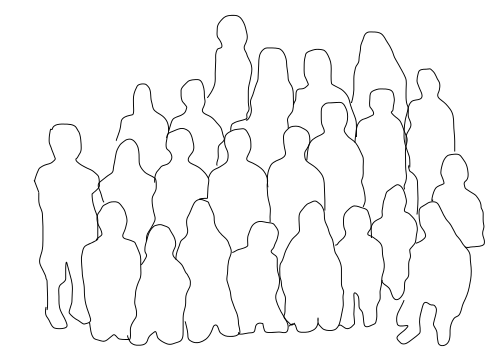
I didn’t tell anyone that night. I didn’t tell anyone the next day or the day after that either. For months, I stayed quiet. Over a year later, I’m still not sure why I stayed quiet. I suppose I didn’t want to admit that something so unthinkable could have possibly happened to me, but mostly, I was so horribly afraid of what he would do. I have spent every day since in denial, shame, regret, and more than anything, fear. I have denied myself the opportunity to heal by hiding in my self-created shadows of shame. Rumours still exist in my circle of friends that I was the one that took advantage of him because I was sober. I guess I was just too polite or passive or something to justify sticking up for myself, but in hindsight I regret not screaming the truth. But when I go to sleep every night, I don’t think about any of that. I think of him. The image of his face exactly as it was that night will never escape my mind, and it will never cease to terrify me. To this day, I haven’t done so much as kiss a boy without being physically ill within 24 hours. And I probably never will.
Personal expression
That being said, I didn’t write this article to victimise myself. I didn’t write this article to demonise my rapist. I didn’t write this article to shame my “friends” that were quick to judge the situation. I have come to a fuzzy conclusion that I owe this article to myself. Personal expression could be the element, if any element exists at all, that will be helpful. I have spent over a year in nearly complete silence, and that was over a year too long. I, like most foreign college students, initially became friends with the people it was easiest to be friends with at Trinity rather than people that were psychologically tested to be suited to me. I met a few Americans at a party the first weekend I was here, and by way of convenience, became friends with almost exclusively their friends. They partied, drank, did drugs, dealt drugs, and did just about everything else imaginable other than go to college or study. I distanced myself from the negative aspects of their personalities and ultimately decided it would be far easier to warp my vision of them into something positive than to venture off obliviously in the attempt of making new friends with no guarantee of any sort of remote success.
Most of my friends were boys. Being a relatively heterosexual female, I felt like I was viewed as “hot property” amongst the boys simply by virtue of not having a third eye. I viewed this part of rape culture just as “the way things are.” Like many young women, I had been socially coerced into almost appreciating the subtle touches and vulgar nuances. We live in society that tells women not to get raped but never mentions anything to men about not raping women. Unfortunately, not even the biggest herd of the angriest feminists will ever put a definite end to the issue of sexual assault and rape throughout college campuses across the world. A short article that only a small percentage of the Trinity population will glance over probably won’t do it either. But I don’t think that means we should be silent about sexual assault and rape. Yes, it feels awkward and embarrassing, but it shouldn’t be. Like every other relevant issue within current society, its relativity is created by the public. Women in college are four times more likely to be sexually assaulted than any other demographic. But most college women, myself included, don’t report incidents for reasons such as denial, fear, or just plain old confusion. The media presents rapists as being satanic old buck-toothed men with axes in hand, but that’s not always the case. The unwanted hook up in your own dorm room with a friend you’ve known for months can be, and in many cases is also rape.
Sensitivity
Personally, I have never been and probably will never be able to execute revenge, no matter how poetic or retributive it may be, so I have found it hard to find peace after I was raped. I suppose the only internalisation I’ve made about it is that we shouldn’t be so quick to assume that we are always the “good” person and that our experiences in life are always “bad”. We all make mistakes. I don’t mean to imply that anyone ever deserves misfortune, but I suppose no one us has the right to be exempt from it either. Above all else, I now possess a hypersensitivity to my own emotions and the emotions of others. If anything, I have learned to be hypersensitive to these emotions upon painfully realising that very few other people are. Of course, I should not spitefully assume that everyone else in the world is as emotionally unstable as I am, but I also can no longer ignore the possibility. I will (hopefully) leave Trinity with a degree, but I will also leave with this new perspective.
Normal students, just like us, get raped. And normal students, just like us, rape people. Intentionally. Frequently. Unapologetically. Inconspicuously. Below is a list of supports available to all of us who have been affected by sexual assault, whether directly or indirectly. If you would rather talk to a normal student like me, please do so. A word of caution, though: I could be anyone.
Dublin Rape Crisis Centre: http://www.drcc.ie/
TCD Student Counselling: https://www.tcd.ie/Student_Counselling/
Women’s Aid: http://www.womensaid.ie/
One in Four: http://www.oneinfour.ie/






